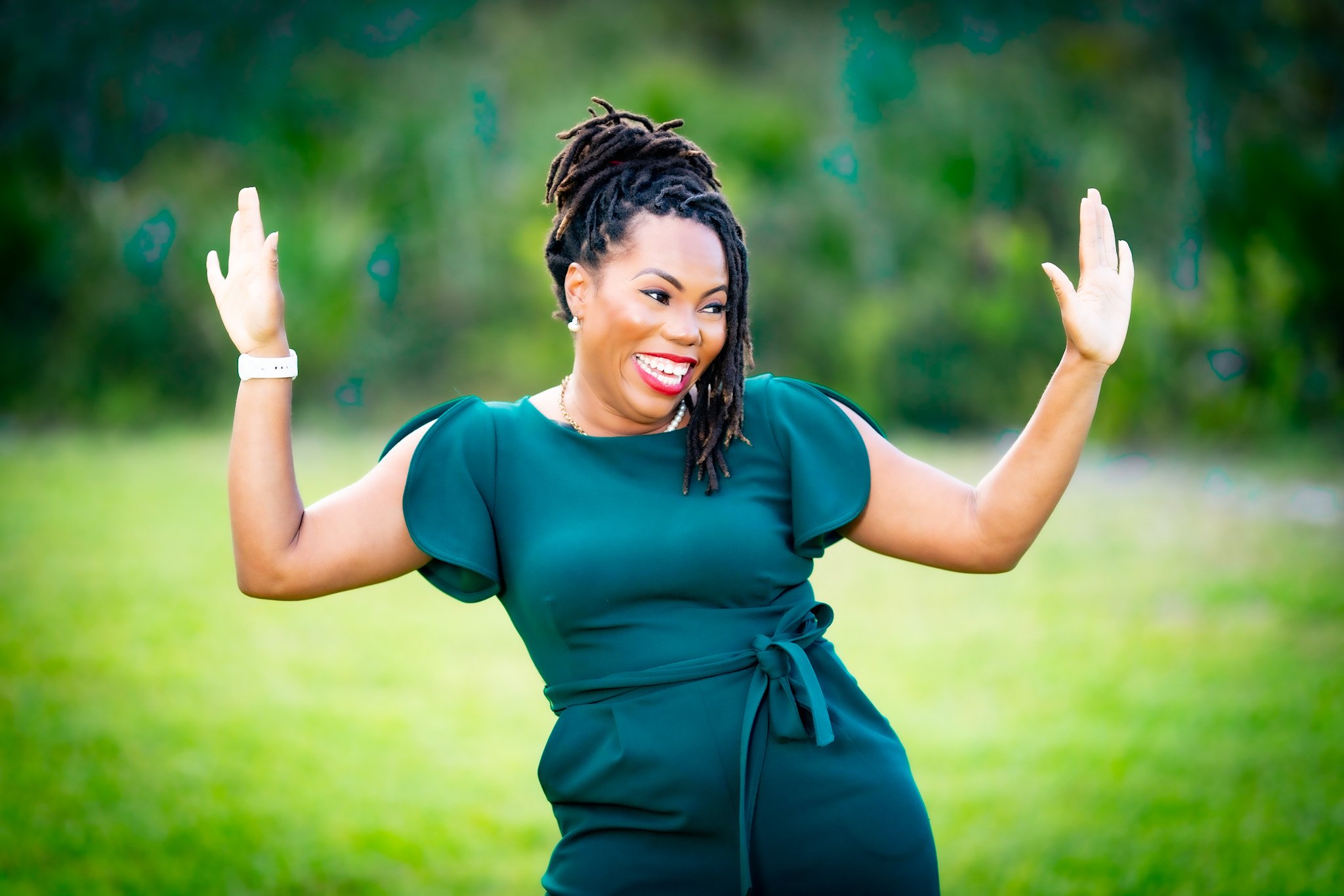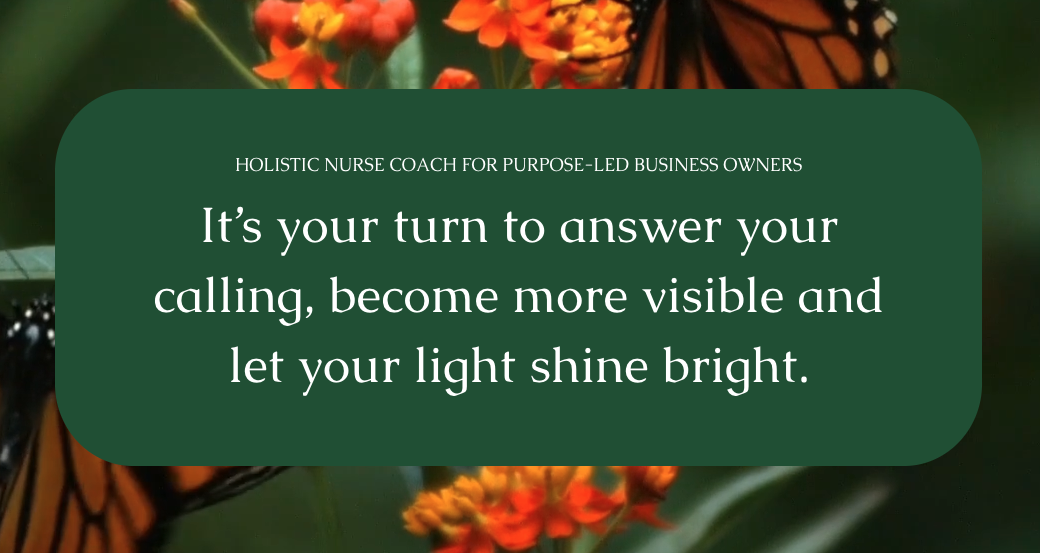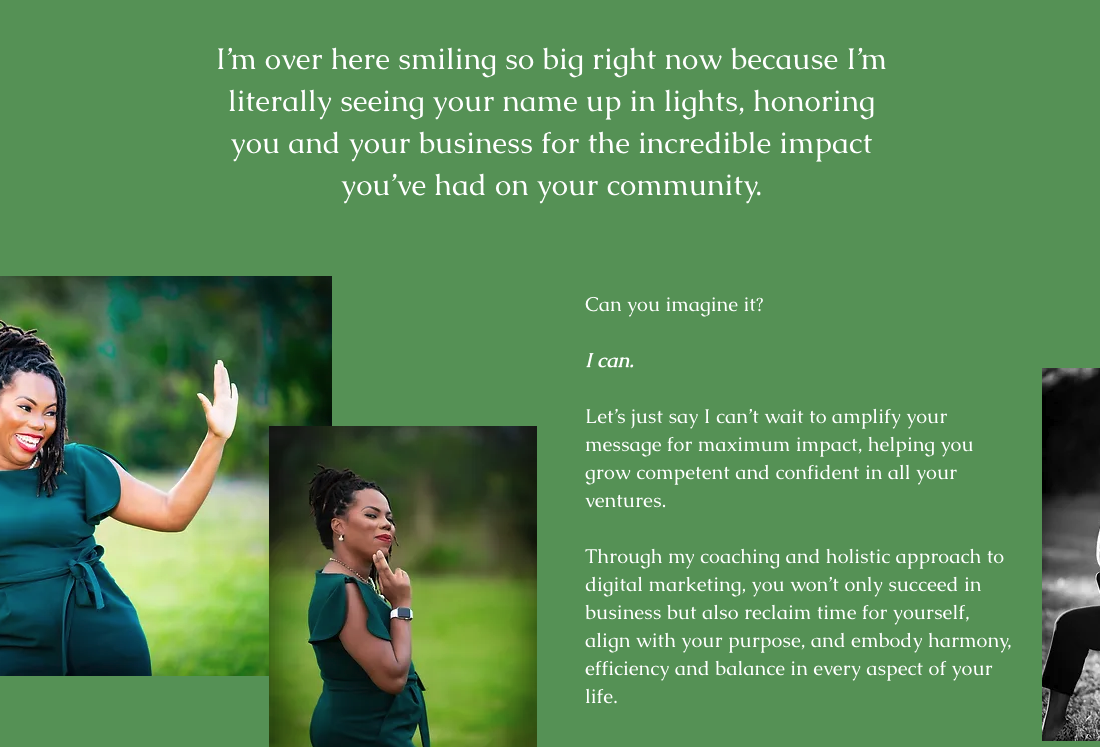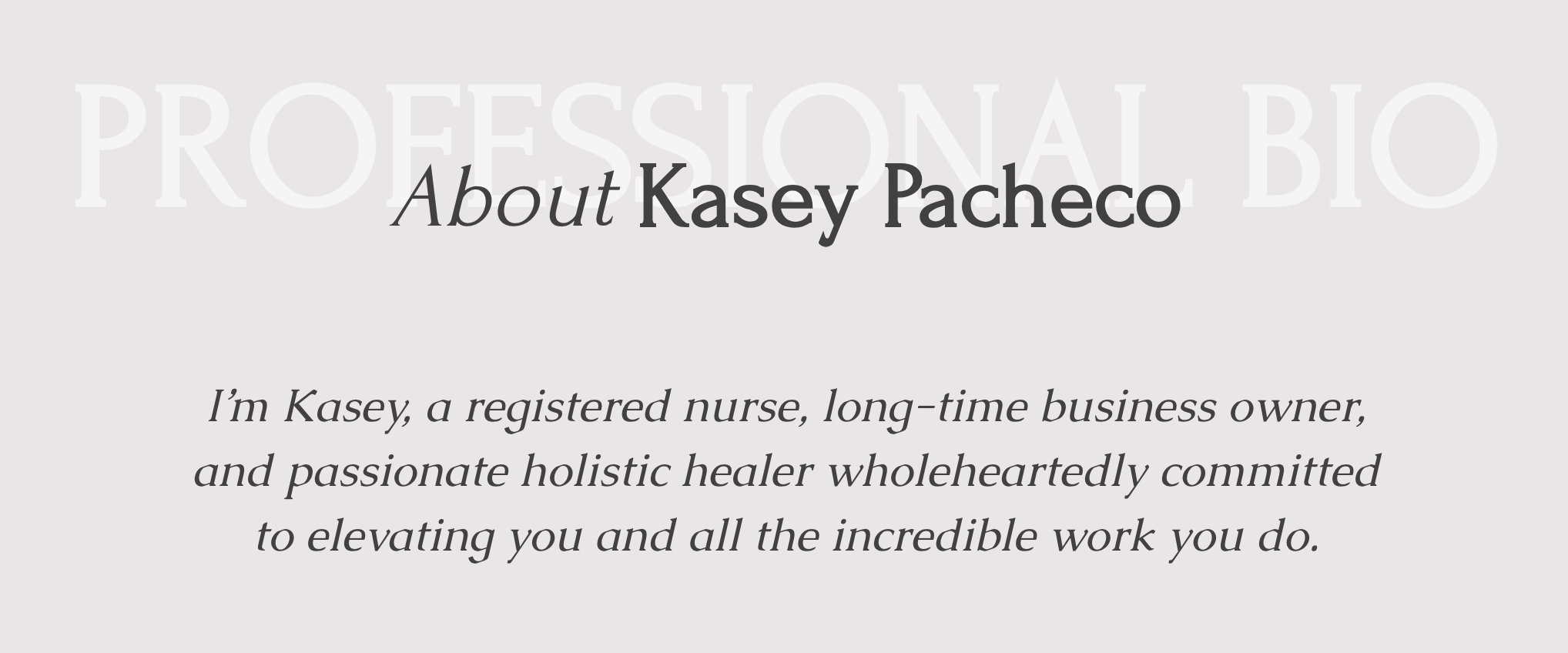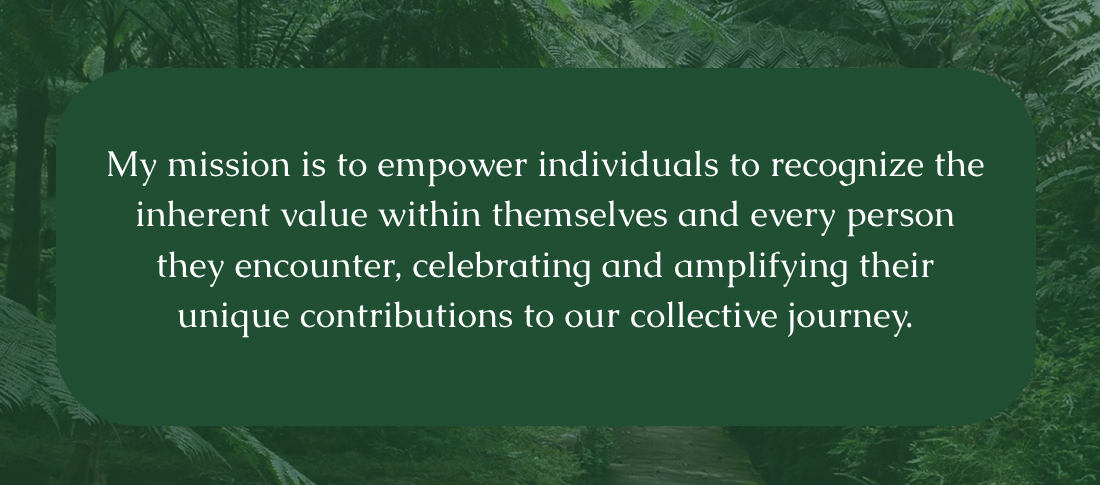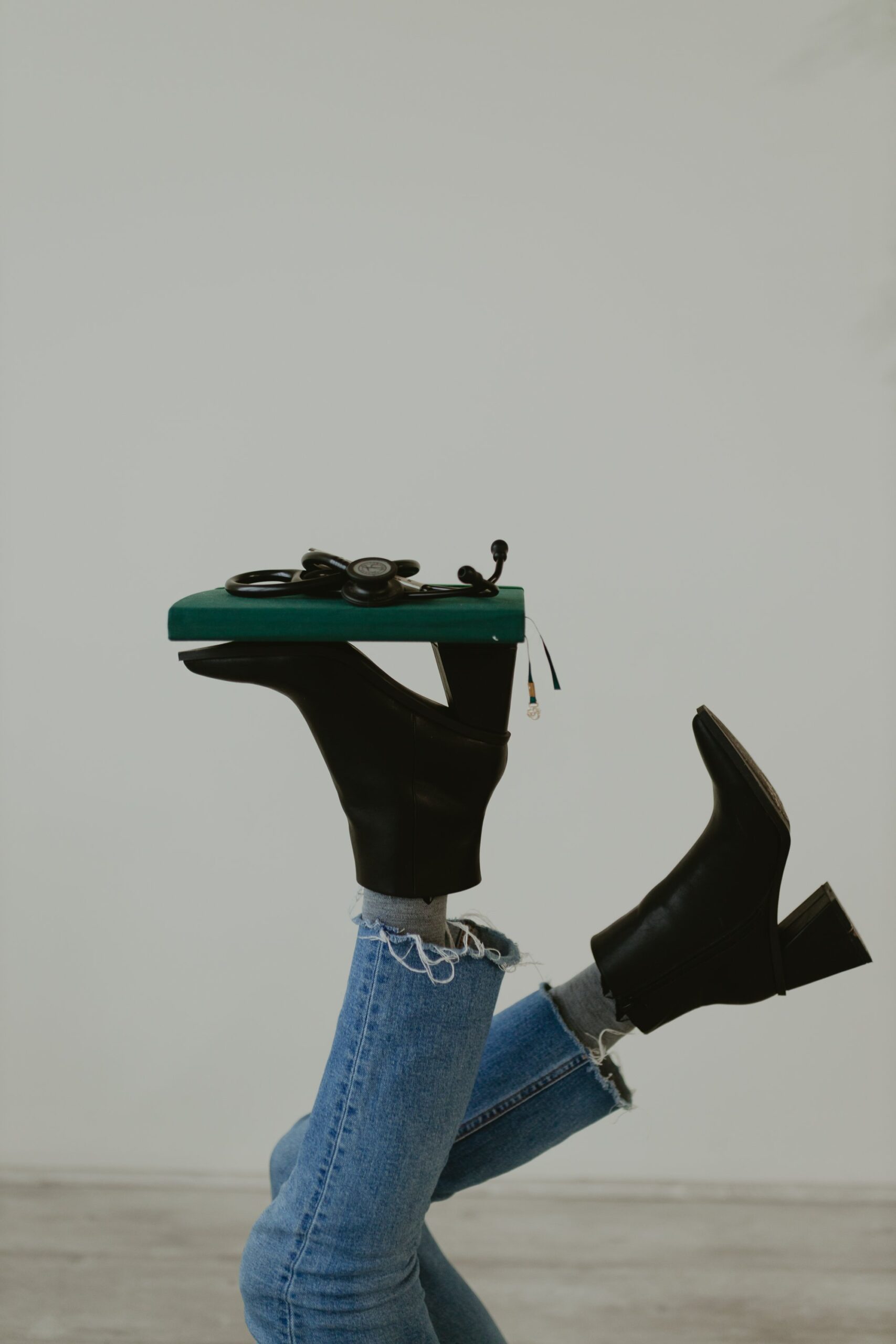I’m sure you’ve noticed that writing about yourself isn’t easy.
It’s actually really freaking hard, and it’s even harder to write in a way that makes people care.
But it is possible, especially when you really know your audience.
You want to share your story, showcase your credibility, and make it clear why you’re the best at what you do. But here’s the catch — you don’t want to make it all about you.
Your About page should resonate with your audience, drawing them in and showing them that you’re not just another face in the crowd — you’re the one who really gets them, helps solve their problems, and transforms their life.
The About page, in particular, is one of the most visited sections of your site and one of the best tools you have for building a connection with your ideal client. When crafted thoughtfully, it becomes a powerful tool for inspiring and empowering your readers.
You want your About page (and your website in general) to be a bridge. You want to bridge the gap between who you are (and all the wonderful work you do) and what your audience needs, creating a pathway that brings the two together.
If your bridge is all about your achievements, your skills, and your accolades, then that’s more like the troll under the bridge waiting to pounce on an unsuspecting traveler.
Your website shouldn’t be a showcase for your ego, a banner for your certifications, or an ode to your education (even if your certifications and education prove your credibility).
Instead, your website is a bridge designed to connect two sides and build relationships. It’s where your audience can get to know you, trust you, and see how you can make a meaningful difference in their lives.
If your About page is all about you, you’re missing out on the chance to truly engage with your community.
So, how do you build a bridge that brings people closer to you and your brand?
Let’s dive into some key strategies that will help you write an About page focused on them and not one that’s all about you.
The Art of the Not-About-You About Page
First things first, before you start writing anything, you need to do some deep market research and fully understand exactly who your target audience is.
You don’t want to just identify their age, income, lifestyle, interests, and challenges. You want to know what gets them out of bed in the morning and why they do what they do. You want to know their needs, desires, pains, and deepest darkest secrets. You want to know what inspires them and what they really want for their future.
Really understanding your audience will shape your About page’s content, messaging, and tone, making it relevant, compelling, and relatable to your readers.
Just remember that when you’re writing website copy, you’re talking to ONE person in your audience, not your entire audience.
You’re writing for A specific person, A specific business, A specific publication, or whoever your ideal client is.
Because, to be honest, if you try to write for every type of person or every type of business, then your copy won’t be specific enough to draw in your ideal client.
So, once you’ve done your market research and know exactly who you’re talking to and how you can help them, then you can write to them in a way they’ll understand.
At the end of the day, people just want to know that their money is going to someone they like, know, and trust.
(I know, you’ve heard that one a thousand times by now, but it’s sooo true!)
And we know that the average person in the US reads at about a 7-8th grade level, so you don’t have to use fancy words or complex sentences to make yourself sound “smart,” and you don’t have to list out your miles-long certifications, either — that isn’t how to build credibility.
All those acronyms and certifications are for your benefit, not your client’s benefit.
While you totally have bragging rights for all those acronyms, and they also give you some serious credibility, your potential customers, especially those first-time website visitors, don’t really care about all the acronyms.
They will only bother to look up their meaning once you give them a reason to care.
And how do you write words that will make them care?
Write your story to show them what’s possible and explain why working with you will benefit them and even transform their lives for the better.
Write to your ideal client as if you’re two friends getting together for a coffee date. Your audience will get to know you better and trust you more if you write your copy how you would talk to a friend, which means you are absolutely NOT allowed to write your About page in the third person because a third-person About page screams, “This show is all about ME.”
Now, I want to show this IN action with my client, Kasey Pacheco, as an example of how to write an About page that’s not actually about you, starting with the hero headline.
Your hero headline is the first impression readers get of your About page, so you don’t want to waste an opportunity to engage with them about the transformation you can offer.
A common mistake I see in About pages is using generic or uninspiring headlines that fail to capture attention.
Instead of simply stating your name, job title, or “About Me,” consider crafting a headline that sparks curiosity or inspiration.
For my client, Kasey, I really wanted to capture her energy in every headline and story I included throughout her website.
I wanted her audience and potential clients to be as inspired as I was listening to her talk about her dreams and how she wants to support her clients throughout their personal journeys, both personal and professional.
Kasey understands firsthand the challenges her clients often face — finding purpose, believing in their worth, and celebrating their successes.
So, I crafted a headline that speaks directly to those aspirations. It’s not just about Kasey — it’s about what she can help her clients achieve. That’s the key to a hero headline that hooks your reader right from the start.
To call her audience forward, I landed on this headline:
Next up, stories.
Many About pages fall into the trap of recounting a dry chronology of achievements or listing qualifications without context.
But stories have a unique ability to captivate and connect with anyone.
So, you want to choose a narrative for your About page that aligns with your mission and values while illustrating how your work has positively impacted others.
You can also share specific examples of challenges overcome or personal anecdotes that illustrate one of your client’s journey while working with you.
If you aren’t specific enough in your copy and you aren’t inspiring your readers to take action, then your readers won’t know that you’re talking to them, and they’ll likely bounce off of your website without taking the next step.
Write to their dreams and aspirations, showing them that you’re the one who will help them get there, and they’ll be on their way to becoming a raving fan and loyal clients.
For Kasey’s About page, I crafted a story that showcased her clients’ dreams and aspirations, positioning Kasey as the guide who can help them reach their goals. The story wasn’t just about her — it was an invitation for her audience to imagine what’s possible when they work with her.
When you share specific, inspiring stories, you make your About page relatable and engaging.
While credibility is important, solely listing achievements or credentials can come off as self-serving.
It’s a general rule of thumb in marketing that people buy from people they know, like, and trust.
So, while your license and certifications are certainly important and give you credibility to serve your clients, you also have to remember that 1) they won’t know or care about the list of acronyms trailing your name and 2) even if they did know what all the acronyms stood for, they still wouldn’t know you.
But how do you toe the line of establishing your professional credibility and including just enough information so that your audience can know, like, and trust you?
For starters, I’m a huge proponent of writing an About page in the first person.
And secondly, I’d highlight the most important licenses and certifications in a way that your audience can actually understand because you don’t want your reader to leave your website to Google what something means.
As pictured below, I wrote out the words “registered nurse” instead of simply writing RN.
And at the end of this project, Kasey received her certification for neurolinguistic programming, so I would have included that information in the section below, but I wouldn’t have used the acronym NLP because it’s essentially meaningless to her audience.
You get to know her just enough to know that she must be a rad human and may be just the type of person that could help solve your problem. Personally, from this section alone, I’d want to get on a call with her just to learn more about her.
And that’s what I wanted for her readers — I wanted them to know her in a way that I have the privilege of knowing her.
Kasey’s personal story impacts her outlook on life, and by telling just a little bit of her story here, we build trust and balance her expertise with how her experiences can benefit her audience.
Now, I love to include mission statements on an About page, especially when I’m writing one that is using this not-about-you formula.
Mission statements are meant to convey your brand’s purpose and values, but using buzzwords, industry-specific jargon, or vague language can obscure rather than clarify your message.
Avoid generic statements like “We strive for excellence…” or “We aim to be the best at…”
Instead, clearly articulate your mission in concrete terms that resonate with your audience. Explain what sets your brand apart and how you fulfill your mission in practical, meaningful ways.
Kasey’s mission statement reads like this:
Your mission statement is a reflection of your brand’s heart and soul. It should communicate not just what you do but why it matters and how it makes a difference in your clients’ lives. Keep it genuine, clear, and inspiring.
So, make it all about them (while being true to you), and you’ll surely build that bridge directly to the heart of your customer.
Here’s the golden rule: your About page should be more about your audience than about you — but it still needs to reflect who you are. Focus on how your journey, skills, and experiences can benefit your audience.
Instead of simply telling your story, frame it in a way that shows your audience what’s in it for them. By making it about them, you make your audience feel seen and understood while still staying true to who you are.
Now that you have insights into crafting an inspiring About page, take the time to review and revise yours. Use these strategies to refine your message and enhance its impact.
So, how does your About page measure up?
If you need help writing a bombdotcom About page that isn’t actually about you, you know where to find me.
More Scroll-Stopping Content
Hey, it’s Bridget — your website copywriting nurse bestie. Have we had a chance to connect yet?
Read my story. Get to know me a little better, because I bet we have a few things in common!
Subscribe to my newsletter. Every week, I write about ways to reinvent what it means to be a nurse, how you can still be impactful even if it’s not at the bedside, and how to DIY all your website copy to attract all your raving fans.
Get my Website Wellness Guide. Are you ready to have a website infused with strategy? Get your FREE guide on writing website copy for every essential page of your website.
Take a spin around the blog. SDN’s blog is constantly growing and a perfect place to get your hands on all the free content a nurse entrepreneur could dream of.
Check out my copywriting services. I write website copy and blog content for nurses in business and nurses with personal brands.
Want to write to me directly? Fill out my contact form, and we can chat about all your big dreams.
